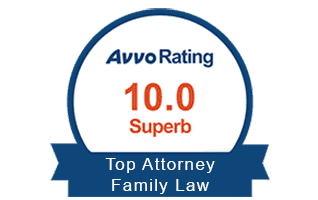
Domestic Violence
Experienced, Respected, Trusted Family Law Guidance
Fairfax Domestic Violence Attorneys
Highly Experienced and Well-Connected Trial Lawyers in Arlington, Alexandria, Leesburg, Manassas
Domestic violence cases are criminal and civil matters. The abuser will be charged and handled in criminal court, while you can obtain legal protection from the offender in the form of a civil protective order. Our attorneys at Hicks Crandall Juhl, P.C. are frequently in court and are intimately familiar with how the Virginia court system works. We are also well-connected with the judges and local legal community, so you can trust that we will know how to efficiently handle your domestic violence case in the family legal system.
Give us a call at (703) 884-1098 or contact us online for more information on how to protect yourself in the face of domestic violence.
What Constitutes an Act of Family Abuse?
In Virginia, domestic violence, or family abuse, refers to any act involving violence, force, or threat that results in physical injury or places a person in reasonable apprehension of serious bodily injury and which is committed by a family or household member. In the context of domestic violence law, a "family or household member" could be:
- a spouse, regardless of residence;
- an ex-spouse, regardless of residence;
- in-laws who live in the same home;
- people who have a child in common, regardless of residence;
- co-habitants; and
- individuals who have cohabited in the past year and their children.
Any person who commits domestic violence will face Class 1 misdemeanor charges, which carry up to 12 months in jail and a $2,500 fine. 3 or more convictions in a 10-year period elevate the crime to a Class 6 felony, punishable by up to 5 years in prison. Offenders will also lose their right to own and possess firearms.
Note that stalking can also be considered a domestic violence offense. A stalker is anyone who, on more than one occasion, engages in conduct with the intent to place another person in fear of death, sexual assault, or bodily injury to them or their family or household member. Stalking is punishable by the same sentences as for standard domestic violence offenses. A person may be charged with stalking in any Virginia jurisdiction as long as they engaged in stalking conduct at least once in that jurisdiction.
Protective Orders for Family Abuse Cases
Individuals who seek protection from a domestic abuser or imminent domestic abuse can request legal protection from the court in the form of a protective order. A protective order can prevent the offending person from having any contact with the family or household members named in the order, as well as other specified conditions like:
- prohibit acts of family abuse;
- prohibit contact with family/household members;
- grant the residence to family/household members;
- grant temporary possession of a jointly-owned or a victim-owned motor vehicle;
- require someone to provide alternate housing for family/household members;
- order the person who committed the family abuse into treatment or rehabilitative programs; and/or
- order temporary custody for up to 2 years.
The court offers three different types of protective orders –Emergency Protective Orders, Preliminary Protective Orders, and 2-year Protective Orders. Similar but separate protective orders can also be issued for stalking victims.
An Emergency Protective Order (EPO) may be requested from the court every time an arrest is made for domestic assault or when there is reason to believe family abuse has occurred or will occur. In such a case, either a law enforcement officer or a victim of abuse may petition for an EPO, which lasts for at least 72 hours and must end at 5:00 p.m. on a day that the Juvenile and Domestic Relations District Court is open. Law enforcement officers may request an extension of the EPO if the person in need of protection is mentally or physically incapable of petitioning for further protection on their behalf.
A Preliminary Protective Order (PPO) may then be requested when the person has been or is in immediate danger of becoming a victim of family abuse. A PPO may be issued ex parte (with only one side present); the defendant may be later notified about a full hearing for a final order. So, the PPO will specify a date for a full hearing within 15 days, with notice given to both parties.
In the full hearing, the judge may issue a final permanent order that can last up to 2 years.
If you have experienced an incident of domestic violence or fear you may, contact our legal team immediately to get started on your legal protection. We can help you quickly petition for a protective order that will prohibit contact from a violent abuser. Do not feel overwhelmed and hopeless in a situation of domestic violence; the law is here to protect you, and we will handle all the legal jargon while you focus on looking after yourself and your children.
Schedule an initial consultation online or at (703) 884-1098 to start on your protective order petition with Hicks Crandall Juhl, P.C.











